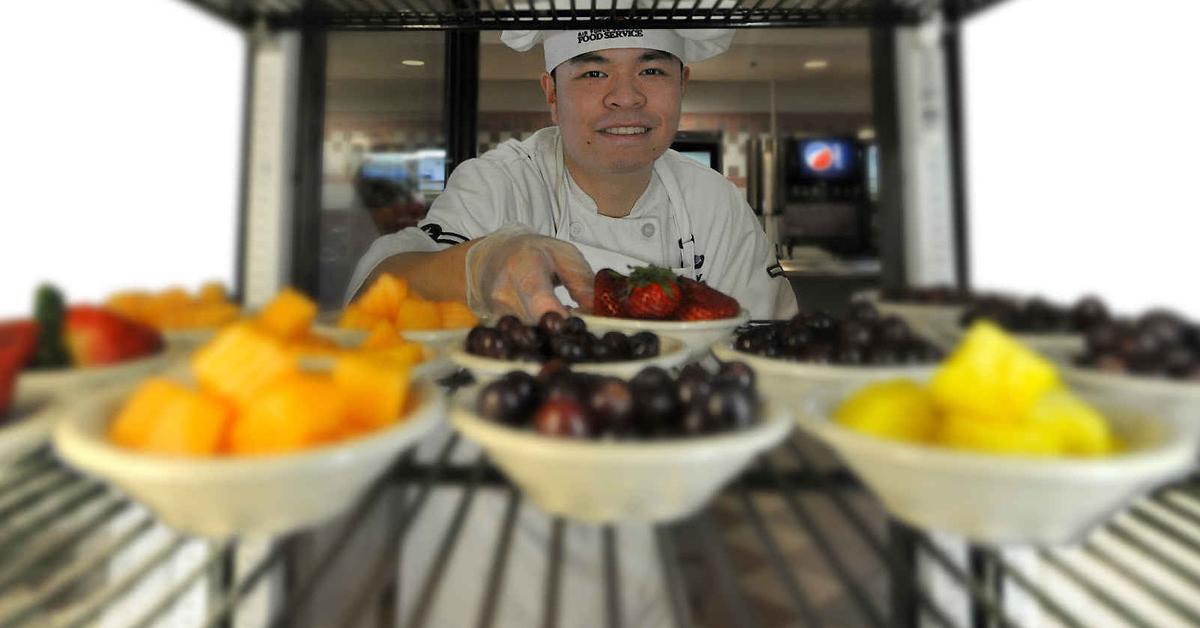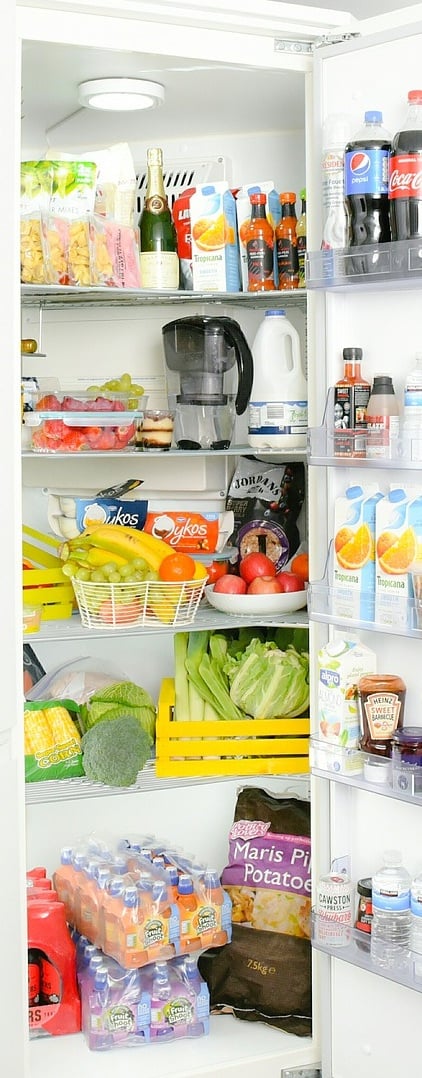
Whether you’re a private household or running a commercial kitchen, do you know the best way to organise your fridge? You might think you can stick any old thing in willy-nilly, but you could be causing some foodstuffs to spoil quicker! If your groceries aren’t lasting as long as they should, it could be your fridge organisation that’s at fault.
Some fruit emits a gas that causes vegetables to rot faster. Eggs can absorb the odours from other food. Here are some tips to help you get the most from your catering fridges and your food.
Refrigerators: The Right Temperature
Ideally, your refrigerator should be set between 0 and 4 degrees however in comercial settings this will vary depending on the produce being stored. This prevents bacteria growth that will speed up the spoiling process.
Check out some tips for how to organise your fridge in a domestic setting.
Higher shelves
The upper sections of your fridge are the areas with the most constant temperature and should be reserved for foods that won’t be cooked. This could include leftovers, ready-to-eat foods, beverages, and pre-cooked meats.
Avoid Piling
Any warm air inside your fridge is pumped out and rises upwards, so avoid piling items on top of your fridge, such as fruit and veg or bread items. Keep it clear if you can or use it to store recipes and cookbooks but not food as it will spoil far quicker.
Fridge Doors
These become the warmest part of a domestic fridge unit, so should be saved for items that contain natural preservatives and don’t spoil easily. Don’t store milk in door compartments, but mayonnaise and juice do well here. Catering storage fridges will never have shelves on the doors.
Bottom shelves
Your fridge is colder at the very bottom, so this is the ideal spot for dairy, eggs, seafood, and raw meats. All items should be well-sealed and ideally put on a plate to keep fresh and reduce cross-contamination.
Salad drawers
Remember to store fruit and veg in separate drawers, as fruit such as plums, peaches, and pears emit a gas that causes veggies to rot.
Eggs
Eggs are porous and will absorb surrounding smells. If you need to store something particularly whiffy, you might want to keep your eggs away from it.


Items You Shouldn’t Refrigerate
Don’t put bread in the fridge or it will simply dry out. You can store it in the freezer for up to 3 months. Tomatoes are best stored and eaten at room temperature to keep their flavour. Onions and potatoes fare much better in a cool, dry, dark place like a cupboard.
Refrigeration: General Advice
Try not to overload your fridge at any time. For chilled air to circulate effectively, it needs space between items. You don’t want to end up with small pockets of heat affecting your fridge’s efficiency. It’s also a good idea to remove everything and give your fridge a good clean once a month to prevent unpleasant odours and the growth of bacteria.
How Organising Refrigerated Stock Can Save You Pounds in Commercial Kitchens
Many people think that commercial refrigeration units can be installed, switched on, and will run themselves. While this is true, there are a number of things your restaurant can do to optimise its refrigeration operations.
By organising stock correctly, you will not only have created a system that enables items to be on hand when you need them but also maximise the efficiency of your equipment. The compressor doesn’t need to work as hard and will therefore last longer.
The decrease in workload for the compressor also means that you can save money on your utility bills and overall running costs. To achieve optimum organisation, you may need to install extra shelving to accommodate your new stock layout.
How to Reorganise to Achieve Optimum Results
Whether stocking storage refrigeration, display refrigeration or a walk in cooler, the same rules should apply.
- Create enough space between stock: Ample space should be left around items to allow a flow of cold air to circulate, effectively refrigerating stock. The recommended space between walls and other products is between 3-6 inches.
- Refrain from storing items directly on the floor: Keeping stock above floor level allows easier sanitisation and reduces any risks of pest infestation.
- Position fresh stock correctly: Fresh stock, such as fruit and vegetables, should be kept at the furthest point away from the refrigeration fans.
- Adhere to food safety regulations: All meat items should be kept on the lower shelves to prevent cross-contamination.
- Train kitchen staff to follow standard storage rules: The main rule is generally referred to as ‘first in, first out’. Strict stock rotation decreases waste, increasing profit.


Organising and arranging refrigeration may seem trivial compared to more stressful restaurant commitments, but finding time to do these tasks properly once will mean that you have no need to worry and give it any thought for another month or so. Once the organisation is complete, aim to tidy up and realign refrigerated stock once a month. This will bring your refrigeration in line with food safety regulations and save you money through less waste and increased unit efficiency.
5 Tips for Keeping Refrigerated Ingredients Fresher for Longer
- Store fruit and vegetables prone to drying out in unsealed or perforated plastic bags.
- Put residual coriander leaves in an airtight container and refrigerate them.
- Remove the stem from whole chillies before refrigerating them.
- Store each type of fruit and vegetable separately to prevent them from reacting with each other.
- To keep fish fresher for longer, clean it and add a little turmeric and a sprinkling of salt before wrapping and storing it in the freezer.
Investigate some for yourself to make sure that you are preserving your produce to their full potential.







Leave a Comment
Your email address will not be published. Required fields are marked *